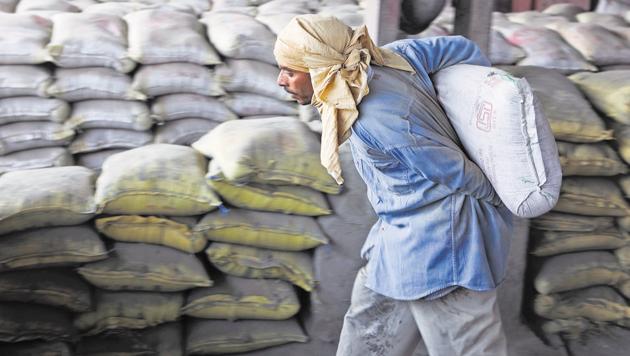7% growth? Experts want new panel to handle data
An independent and impartial body must look at key indicators that determine the health of the economy, economists and public policy experts have told the Union government, warning that India must ensure the credibility of its data does not come under question.
An independent and impartial body must look at key indicators that determine the health of the economy, economists and public policy experts have told the Union government, warning that India must ensure the credibility of its data does not come under question.

The views were expressed separately by a think tank comprising 46 economists and public policy experts, and former Reserve Bank of India (RBI) governor Raghuram Rajan on Tuesday.
“I would say setting up an impartial body to look at it [Gross Domestic Product numbers] is an important step to restoring confidence,” the former central bank governor told CNBC TV18 in an interview during which he also said it could be a possibility that the Indian economy may not be growing at 7%.
“I know one minister [in the Narendra Modi government] has said [that] ‘how can we be growing at 7% and not have jobs.’ Well, one possibility is that we are not growing at 7%,” Rajan said, without naming the minister.
He was commenting on the controversy surrounding India’s macroeconomic data and statistics on unemployment.
Think tank Pune International Centre (PIC) said on Tuesday that the National Statistical Commission must be given autonomy and constitutional status on the lines of the Election Commission, in a publication that referred to the controversies over the authenticity of national data.
“The series of incidents and commentary that followed stain the otherwise credible cloak of Indian data-scape. It is very important for India to protect and strengthen the credibility of its word and that is reflected in how it treats data,” PIC said in its latest publication, 2019-2024: Public Policy Agenda, released on Tuesday.
The report said two important macroeconomic indicators of the health of the economy are private sector investment and exports, growth of which from 2012 to 2017 has been stagnant.
On the contrary, according to the Central Statistics Office’s (CSO) revised yardstick or new series of calculating GDP, India is the fastest growing economy in the world. “These discrepancies have raised questions and doubts about the accuracy and veracity of the GDP estimates and dented their credibility,” it said.
Stressing the importance of data accuracy, it said, “If GDP is overstated, the targets given to [say] the income tax authorities are too high, and can lead to excessively over-zealous tax collection”.
“Similarly, if GDP is overstated, then a target for bond issuance [which is typically expressed as per cent to GDP] can result in excessive claims upon the financial savings of the economy,” it said.
The foreword to the document, jointly written by PIC president Raghunath Mashelkar and vice-president Vijay Kelkar, said: “We hope that this document will contribute towards building a solutions bank, ideas for the action agendas of our national parties and also enable building a consensus during the forthcoming national election policy debates”.
Other contributors include Ila Patnaik, Nachiket Mor, Rathin Roy, Shamsher Singh Mehta, V Bhaskar, Sukhadeo Thorat, Milan Vaishnav and Vijay Paranjpye.
According to Rajan, India’s GDP figures have seen a lot of revisions after the adoption of the new series, and some of this is not in keeping with other variables such as private investment. Even if the government’s claim of the numbers being correct is true, it would help clear the confusion if an independent panel of economists was allowed to address such questions, he added.
The think tank also suggested constituting an independent committee of national and international experts with the mandate and authority to diagnose the problems with the new series and recommend ways to resolve them. “The findings of the committee must be made publicly available for the sake of accountability and transparency,” it said.






